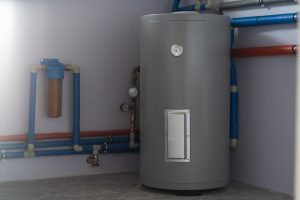When you wake up to a cold shower or realize your faucets only deliver icy water, it’s clear that your water heater isn’t working. This inconvenience can quickly turn into a major disruption in your daily routine, especially in the colder months. Before you panic, let’s walk through some practical steps you can take to troubleshoot the problem and decide if it’s time to call a service professional to help.
1. Check the Power Source
The first step is to ensure that your water heater is receiving power. If you have an electric water heater, check your circuit breaker panel to see if the breaker has tripped. Resetting it might solve the issue. For gas water heaters, verify that the gas supply valve is turned on and that the pilot light is lit. If you’re not comfortable working with gas, it’s best to call a service professional.
2. Inspect the Thermostat Settings
Sometimes, a simple thermostat adjustment can bring your water heater back to life. Most water heaters have a thermostat setting between 120 and 140 degrees Fahrenheit. If the temperature is set too low, increase it slightly and wait to see if the water begins to heat up. If this doesn’t work, your thermostat could be faulty and may need replacement. If so, call a service professional here at AW Heating & Cooling, Inc.
3. Look for Leaks or Strange Noises
Water heaters can leak or make unusual noises when they’re struggling. Check around the base of your water heater for any puddles or moisture. A leak could indicate a more serious issue, such as a corroded tank. If you hear popping or rumbling sounds, it might be a sign of sediment build-up inside the tank. This build-up can reduce efficiency and cause the unit to overheat. In these cases, flushing the tank might help, but you may need to consult a service professional for more complicated repairs.
4. Consider the Age of Your Water Heater
Water heaters typically last about 8-12 years. If your unit is approaching or surpassing this age, frequent problems may be a sign that it’s time to replace it. Investing in a new, energy-efficient model could save you money in the long run, especially if your current water heater requires regular repairs.
5. Call a Service Professional for Water Heater Repair
If you’ve tried the steps above and your water heater still isn’t working, it’s time to call in the experts. A service professional will have the skills and equipment to diagnose and repair the problem safely. Attempting to fix it yourself, especially when dealing with electrical or gas components, can be dangerous.
You can rely on experienced service professionals for water heater repair services that ensure your system is up and running as quickly as possible. Don’t let a malfunctioning water heater disrupt your day any longer—reach out to a trusted service professional who can assess and repair the issue efficiently.
Remember, regular maintenance can prevent many common water heater problems. Scheduling annual inspections and servicing can extend the life of your water heater and help avoid unexpected breakdowns.
When your water heater stops working, don’t let it leave you in the cold. Follow these troubleshooting tips, and if you need assistance, don’t hesitate to contact the service professionals for Water Heater Repair in Maumee, OH.

